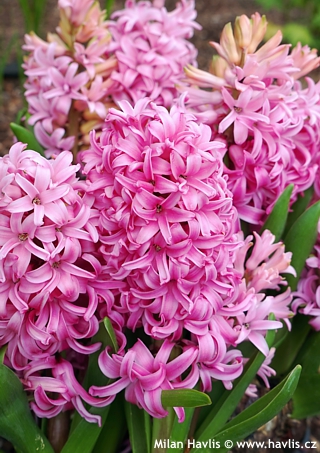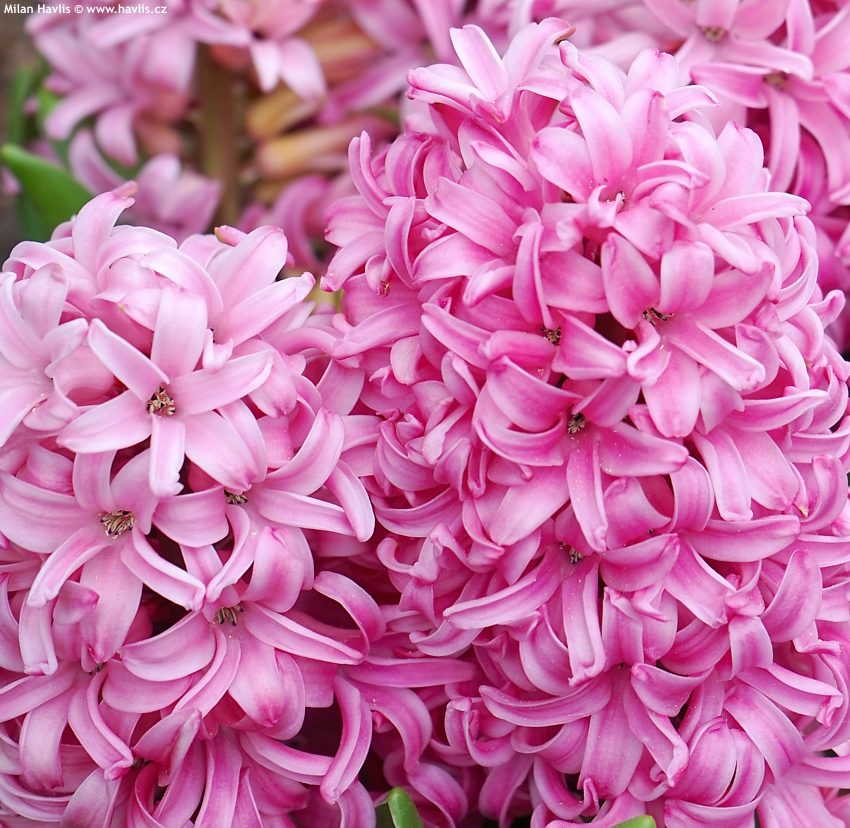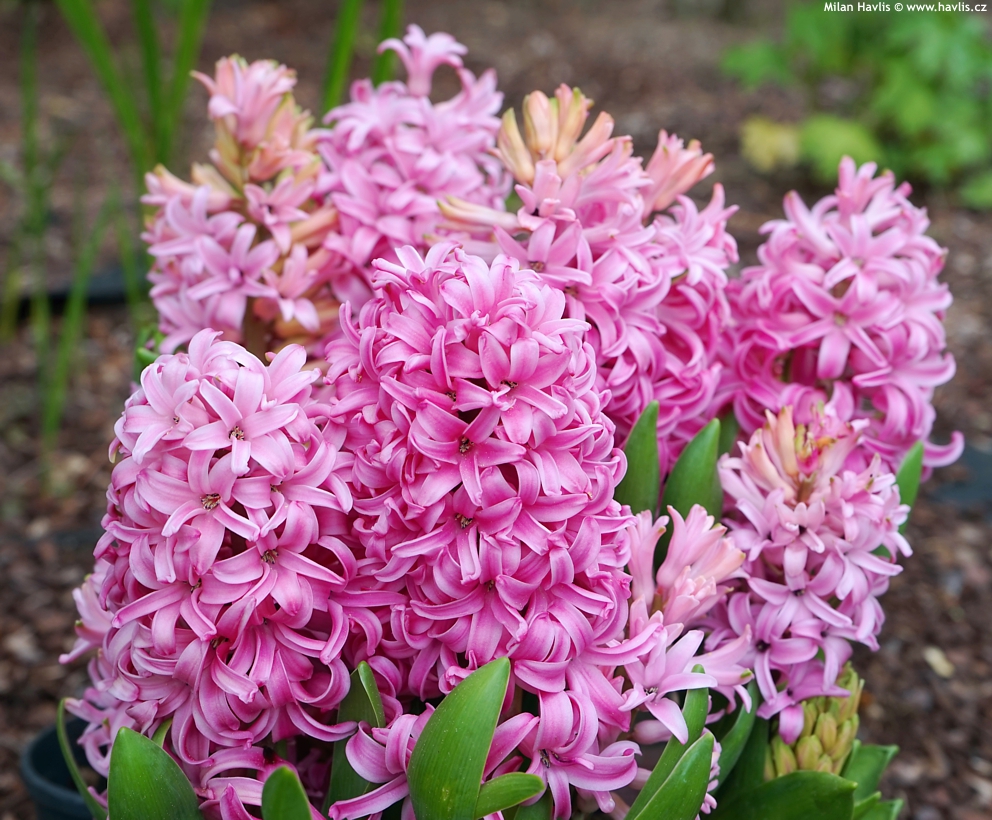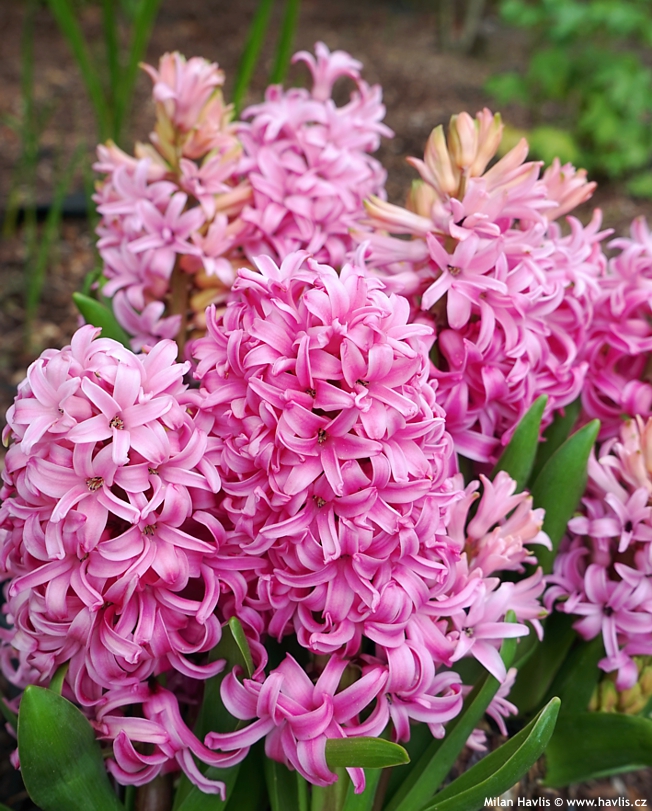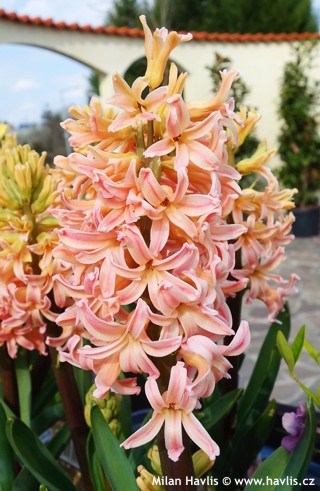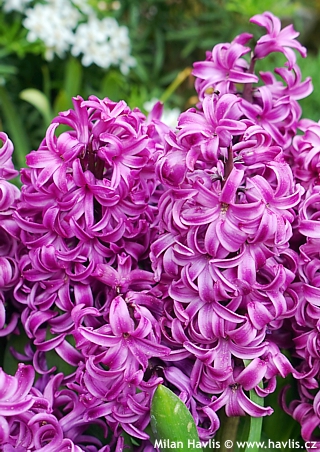Hyacinthus 'PINK PEARL' hyacinth
size/type
low perennial,low perennial
usual height
0,2-0,3m
leaves
deciduous broadleaf
colour of leaves
flowers
showy
colour of flowers
blooming time
April-May
location
full sun
USDA zone (lowest)
5 (down to -29°C)
winter protection
for zone 5+6

for zone 7

categorized
Hyacinthus
Hyacinth is a popular and well-known bulbous perennial. Less known is its name's origin from Green mythology. In ancient times prince Hyacinth (Hyacinthus) was an extremely handsome and athletic son of the king of Sparta, and his beauty struck two Gods who courted him and competed for his love: Apollo, the god of light and sun, and Zephyrus, the god of west winds. Hyacinth chose radiant Apollo which drove Zephyrus mad with jealousy. He caused his death when Hyacinth and Apollo were throwing discus and Zephyrus blew it the way that it hit Hyacinth's head. Apollo, in his grief for his lover, created a flower from his blood after his death. Interesting fact about this story is that Zephyrus was protected against Apollo's anger by Eros, the god of love, who justified Zephyrus' act as the act of love, and in return ordered Zephyrus to serve Eros forever. According to Bibliotheca this is the very first story describing love between two men.Description of the plant:
The Pearl series of hyacinths belongs to the most successful thanks to its rich colours and strong perfume. Pink Pearl brings a sharp pink shade like a neon light in a pulsing city. The flowers are star-shaped and open from late April until May. They are formed in dense, terminal spikes atop 25-30 cm tall stems. Leaves are linear, rich green. Hyacinth prefers humus-rich, fresh, moist but free-draining soil and location in full sun or only a slight shade for a part of the day. They do not multiply as readily as for example daffodils so if you want a rich nest get more bulbs or plants right at the beginning. Feed them as soon as flower buds appear. Cut off stems with spent flowers and wait patiently until the leaves die off to make sure the bulbs gather enough strength to flower profusely in the following spring. It is very hardy to at least -30°C (USDA zone 5) without any protection, or -40°C (USDA zone 3) with a good layer of mulch.
Last update 12-05-2020
QUICK PRICE OVERVIEW
CURRENTLY SOLD OUT












